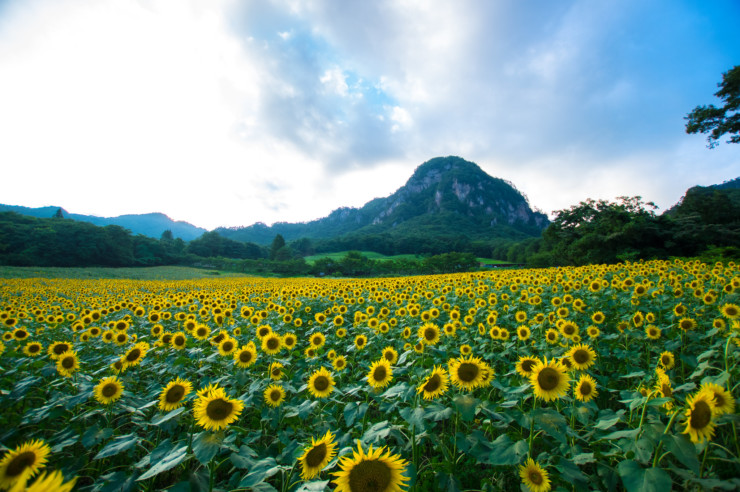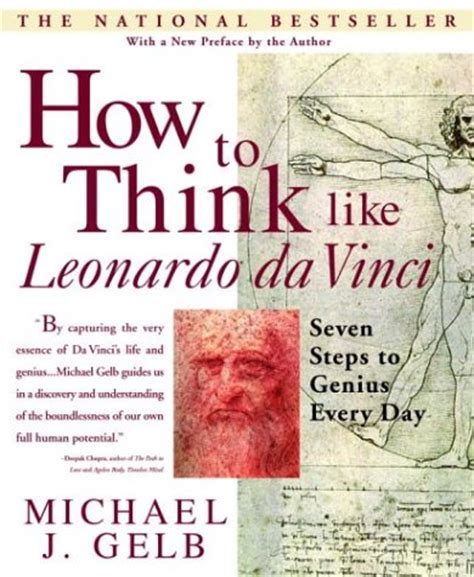My granddad was born in 1908. In his lifetime, he saw the lights turn on (with a newfangled toggle switch), saw the first supermarket open (Piggy Wiggly, I hear it was), saw cars overtake horses as the dominant mode of transport in the streets, saw wages go from 22 cents to 26 dollars per hour on average, saw a man set foot on the moon, saw enough wars to lose count, and saw the temperature of the earth increase nearly a degree and a half Fahrenheit. He saw a lot more than that, most especially in the last 25 or so of his 104 years, when the speed at which things changed hit what we might call breakneck.
Things didn’t always move so fast. Before the vast changes that came with the period known as The Renaissance, time in some ways stood still. William Manchester wrote of this pre-Renaissance period, calling it a “melange of incessant warfare, corruption, lawlessness, obsession with strange myths, and an almost impenetrable mindlessness.” He went on to describe the pace of human and technological development during that time, noting that “nothing of real consequence had either improved or declined. Except for the introduction of water wheels in the 800s and windmills in the 1100s, there had been no inventions of significance. No startling new ideas had appeared, no territories outside Europe had been explored. Everything was as it had been for as long as the oldest European could remember.”
It was no real disaster for the good people of the Middle Ages then, that mechanical clocks did not exist. These were invented during The Renaissance and changed the way that commerce was conducted, by, as Michael Gelb writes in How to Think Like Leonardo da Vinci, “allowing people to experience time as a controllable commodity.” Because time was not a concept particularly familiar to Medieval folks, “the vast majority of people didn’t know what year it was or even what century they lived in.”
With the dawn of The Renaissance, change seemed to come fast and furious (by Middle Ages standards, in any case). The world saw the emergence of the printing press, as well as pencil and affordable paper, which changed the way that individuals could access and study information and gain personal knowledge. The invention of the compass and development of the forge sailing ship facilitated travel over the sea, accelerating international trade and informational and cultural exchange. And emergence of long-range weapons changed the geo-political landscape and even the type of governance of nations. Gelb notes that these developments were preceded by the Black Plague, a great equalizer among people which, for whatever reason, led to a democratization of and hunger for knowledge that created a “surging intellectual energy, dammed for a millennium in ecclesiastical reservoirs” which flooded through the “pestilence-inspired breach.”
The people of the Middle Ages had no reason to be concerned that they were standing still. That “almost impenetrable mindlessness” that so dominated the era allowed them to be unbothered by the passing of time. They seemed not to consider how history would view them; this would require a thoughtfulness, a mindfulness, that (at least some judge) they did not have. It is this “mindlessness” that seems most interesting as a primary source of the dearth of inspiration of the Middle Ages. The rapid and profound growth of industry, technology and scholarship of The Renaissance points to a newfound mindfulness that spurred on a period of great transformation.
Gelb writes of the transformation of our time, and of the character of today’s Renaissance Man or Woman, or as I like to say, Renaissance Person. Today’s uomo universale, he observes, is a “well-rounded person, comfortable with both art and science.” He notes that they would be computer literate, “attuned to developments in information technology and increasingly at home on the World Wide Web.” Additionally, they are mentally literate, concerned with an “evolving understanding of the workings of the human mind.” Finally, the Renaissance Person is globally aware. They possess an appreciation for the “global links in communication, economies, and ecosystems.”
When we consider creativity, we often think in terms of the arts. Perhaps we consider the ways in which we boost creativity by long walks in the woods, by reading poetry, by wandering through a museum, by sipping tea in view of a patch of wildflowers in the park. Gelb will have us believing that creativity — the kind that brings about transformation in our lives and our world — calls for a certain kind of intellectual engagement. One that expects us to hold a familiarity with world events, that feels comfortable around technology, that opens oneself up to various other cultures, identities and worldviews.
My granddad was a tinkerer and homegrown inventor of sorts. A true uomo universale, he had a comfort with the global and technological advances of his time. He lived to see the birth and explosive growth of the Internet, but it came just past the age when he could really engage with it. He often reflected that he wished he could have understood it better. Had it come a few years earlier, I like to think he would have had his own startup. Had it, and he, come a few centuries earlier, I like to think he and da Vinci would have swapped sketches over a glass of wine and an Italian meal.
***
Join us as we spend a few weeks reading How to Think Like Leonardo da Vinci together. Next week, we’ll explore Part Two.
Buy How to Think Like Leonardo da Vinci
Photo by Naoki Natsume/Ishii, Creative Commons via Flickr. Post by Will Willingham.
- Earth Song Poem Featured on The Slowdown!—Birds in Home Depot - February 7, 2023
- The Rapping in the Attic—Happy Holidays Fun Video! - December 21, 2022
- Video: Earth Song: A Nature Poems Experience—Enchanting! - December 6, 2022


L.L. Barkat says
I love the story about your grandad. Made me smile. 🙂
There are so many things to say about the rest of the post (and ask about it 🙂 ), that I think I’m going to end up with a bit of a list in response….
• the Black Plague dynamic fascinates me. Was it about being an “equalizer” (which implies more strictly the question of power dynamics), or was it rather about being something that literally cleared out society, so that people who had lived with one role now had a wide open chance to assume another role (or multiple other roles)? Which, I know, also comes down, in its way, to power dynamics (because without that space being made, people never would have been given the chance to reinvent themselves—whether that be in upward, lateral, or downward moves—by the power & status structures that were in place). Yet, there is always the possibility for us to try on various roles even without a plague to take the role-rug out from under us. This might end up being related to culture (how much we are asked to be single-role in any particular culture), the health of our arts mindset in society, and maybe our sense of being science-y (in its most basic sense: being fascinated by what we see around us and questioning how things work and if they can work differently or if we can work differently as a result of our fascinated observing of our surroundings)
• What is creativity? There are various definitions of it, among which, of course, is the creation of novel inventions. But is that the main thing? Is it just related to inventions? If a person is creative in other ways (or a society is creative in other ways), will that naturally result in a lot of new inventions?
• Is there such a thing as *feeling* creative, and is this in any way related to actual creativity?
• Everybody is deeply creative when they fall asleep at night and dream. Dreams juxtapose unrelated things, which gives rise to new ideas and possibilities. At least that’s what we assume if we don’t study the dream life of various people across time and culture and compare them. I wonder: was there a difference in the dream life of those in the Middle Ages and those in other more “creative” ages? If so, what made the dreams different? I mean, are we also constrained in our dreams? Or, having dreamed in an unconstrained way, is there a reason why that creativity is then quashed when we open our eyes from sleep?
• Were the people of the Middle Ages actually mindless? Or were there minds off in a different direction from what Gelb values? (I mean, does war and corruption and myth-making not also exhibit some kind of creativity?)
There’s more that could be said and asked, but I think I’ll go get a cup of tea and leave space for others to say and ask. 😉
LW Willingham says
This is a lot of questions. 😉 I’ll try on the dreaming one. I don’t know about the dreaming so much but I know sleeping makes a big difference. I always tell our 2-week students that they have to rest and sleep a lot over the weekend in between. Those that do come back understanding things on Monday that they were still struggling with on Friday.
For myself, I know that if I mull an idea over some during the day but then also quite literally sleep on it, I often have greater clarity on it the next day.
L.L. Barkat says
Probably your dreams helping you out there. You know, juxtaposing a Powerpoint presentation with your chickpea pasta, to give you some kind of illumination about what would feed your students’ minds best. 😉
Sara did her senior project on dreams, and so I got to learn interesting things like that we dream at hyperspeed—it’s “thinking on steroids.” No wonder we sometimes solve problems in our sleep that we hadn’t even begun to solve yet in our waking hours. 🙂
I wonder if the people in the Renaissance were sleeping more. Hee. 🙂
Sandra Heska King says
My FitBit tells me I dream about 25% of my sleep time. That’s a lot of action that I don’t remember. NatGeo’s cover story in last August’s edition was on sleep and says we literally go mad when we dream–that we are in a psychotic state, and that the brain “guzzles” as much energy then as in the awake state. I just wish I could remember more of the randomness than just bits and pieces. But the article also says that “Lack of dream recollection is actually an indication of a healthy sleeper.” So there’s that.
It also says: “Perhaps the most remarkable thing about REM sleep is that it proves the brain can operate independently of sensory input. Like an artist ensconced in a secret studio, our mind appears to experiment without inhibition, let loose on its own personal mission.” When we’re awake, we’re busy about life and trying to be creative, but when we “commence our first REM session, the most elaborate and complex instrument known in the universe is free to do what it wishes. It self-activates. It dreams, This, one could say, is the playtime of the brain. Some sleep theorists postulate that REM sleep is when we are most intelligent, insightful, creative, and free. It’s when we truly come alive.”
Maybe I need to sleep more, to dream more, to maybe remember more.
I, too, wonder if the people of the Renaissance were able to relax a little more and sleep a little better after the “melange of incessant warfare,” etc. and the plague.